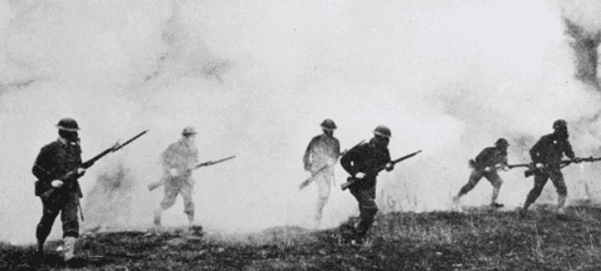|
The poem explores themes of peace, fraternity, and prosperity, reflecting on the aftermath of war and the desire for unity among humanity. |
Card: 2 / 44 |
|
True or False: The poet encourages the use of spoken language as a means of communication in the poem. |
Card: 5 / 44 |
|
False. The poet advocates for silence as a universal language that unites people. |
Card: 6 / 44 |
|
The poet suggests we should stop our worldly activities and keep silent to reflect on ourselves and our relationships with others. |
Card: 8 / 44 |
|
Fill in the blank: The poet believes keeping quiet will help us build a ___ world. |
Card: 9 / 44 |
|
The 'exotic moment' refers to a time of stillness and silence where people set aside their worldly affairs, leading to a sense of unity and reflection on their actions. |
Card: 12 / 44 |
|
Those who prepare 'green wars' and 'wars with gas' are described as doing what in the poem? |
Card: 13 / 44 |
|
They are depicted as putting on clean clothes and walking with their brothers in the shade, suggesting a call to abandon harmful actions and embrace peace and fraternity. |
Card: 14 / 44 |
|
Fill in the blank: During the moment of stillness, fishermen would not harm ___ in the cold sea. |
Card: 15 / 44 |
|
True or False: The poet advocates for total inactivity and withdrawal from life. |
Card: 17 / 44 |
|
False. The poet emphasizes living life fully without causing harm to others, rather than promoting total inactivity. |
Card: 18 / 44 |
|
What emotional experience does the poet draw from in expressing his desire for peace? |
Card: 19 / 44 |
|
The poet's desire for peace is deeply influenced by his experiences during World War II, which left him with a strong aversion to mass death and destruction. |
Card: 20 / 44 |
|
What does the poet suggest is the root cause of human conflict and destruction? |
Card: 21 / 44 |
|
The poet suggests that our greed, selfishness, and materialistic mindset are the root causes of wars, murders, and destruction.  |
Card: 22 / 44 |
 Unlock all Flashcards with EduRev Infinity Plan Starting from @ ₹99 only
|
|
The poet believes that keeping silence can interrupt our sadness and allow us to understand ourselves better, leading to peace and fraternity. |
Card: 24 / 44 |
|
Fill in the blank: The Earth can teach us about patience because it may seem ___ at times but can later prove to be alive. |
Card: 25 / 44 |
|
True or False: The poet believes that immediate action is more important than reflection and silence. |
Card: 27 / 44 |
|
False. The poet emphasizes the importance of silence and reflection before taking action. |
Card: 28 / 44 |
|
What lesson does the poet draw from nature's slow processes, such as tree growth? |
Card: 29 / 44 |
|
The poet illustrates that patience and perseverance are necessary, as nature may appear dead but is actually alive and thriving over time. |
Card: 30 / 44 |
|
What literary device is demonstrated by the phrase 'count to twelve and we will all keep still' in the poem? |
Card: 31 / 44 |
|
This phrase exemplifies antithesis, as it juxtaposes the action of counting with the concept of stillness, highlighting the contrast between movement and silence. |
Card: 32 / 44 |
|
True or False: Repetition is used in the poem to enhance its rhythmic quality and create a sense of urgency. |
Card: 35 / 44 |
|
False. Repetition is used for poetic effect, but not specifically to create urgency. |
Card: 36 / 44 |
|
'Brothers' symbolize mankind, representing unity among people, and 'green wars' refer to deforestation, highlighting the environmental struggles we face. |
Card: 38 / 44 |
|
Fill in the blank: The use of personification in the poem allows the poet to attribute ___ characteristics to non-human elements. |
Card: 39 / 44 |
|
Enjambment creates a sense of flow and continuity, allowing thoughts to spill over into the next line, which enhances the poem's rhythm and urgency. |
Card: 42 / 44 |
|
'Wars with gas' symbolize pollution, indicating the destructive impact of industrialization and environmental degradation.  |
Card: 44 / 44 |























